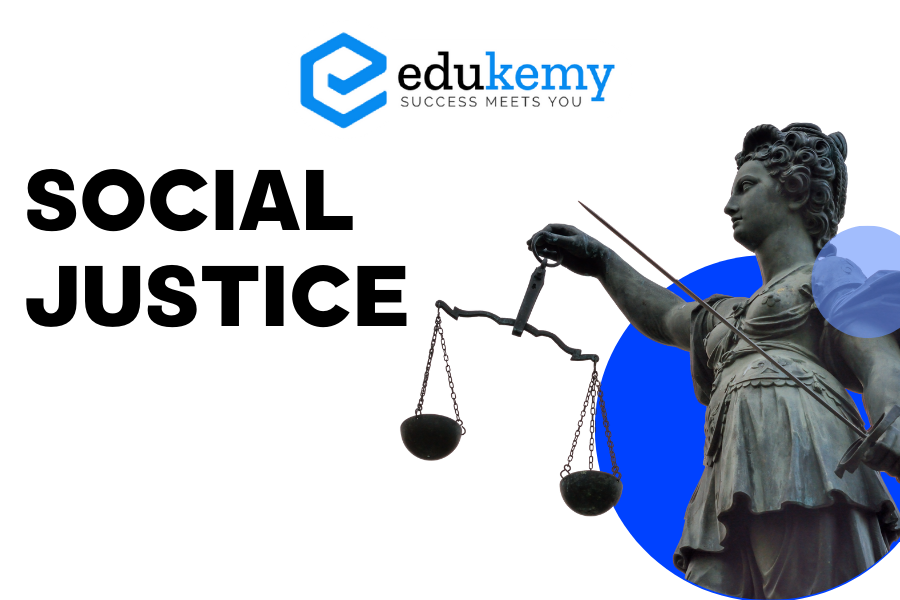
Social justice refers to a political and philosophical theory that focuses on the concept of fairness in relations between individuals in society and equal access to wealth, opportunities, and social privileges.
Contents
Five Principles of Social Justice:
- Access to Resources- Access to resources is an important principle of social justice and refers to the extent to which different socioeconomic groups receive equal access to give everyone an equal start in life. Many societies offer a multitude of resources and services for their citizens, such as healthcare, food, shelter, education, and recreational opportunities.
- Equity- Equity refers to how individuals are given tools specific to their needs and socioeconomic status in order to move towards similar outcomes. It contrasts with equality, where everyone is offered the same tools to move towards the same outcome.
- Participation- Participation refers to how everyone in society is given a voice and opportunity to verbalize their opinions and concerns and have a role in any decision-making that affects their livelihood and standard of living.
- Diversity- Understanding diversity and appreciating the value of cultural differences are especially important because policymakers are often better able to construct policies that take into consideration differences that exist among different societal groups.
- Human Rights- Human rights are one of the most important principles of social justice and form a foundational part of the concept. Human rights and social justice are certainly interrelated, and it is impossible for one to exist without the other.
FAQs
Social justice refers to the fair and equitable distribution of wealth, opportunities, and privileges within a society. It aims to address systemic inequalities and discrimination based on factors such as race, gender, socioeconomic status, and sexual orientation.
Social justice is crucial for fostering inclusivity and equality within societies. By addressing disparities and ensuring everyone has access to basic rights and opportunities, it helps create a more just and cohesive community where individuals can thrive regardless of their background.
Individuals can contribute to social justice by educating themselves about systemic injustices, advocating for policy changes that promote equality, supporting marginalized communities through volunteering or donations, and actively challenging discriminatory attitudes and behaviors in their personal and professional lives.
Examples of social justice issues include racial discrimination, gender inequality, income inequality, LGBTQ+ rights, access to healthcare and education, immigration reform, and environmental justice. These issues often intersect and require multifaceted approaches for resolution.
Social justice and human rights are closely intertwined, as both advocate for the fair treatment and dignity of all individuals. While human rights focus on fundamental freedoms and protections inherent to all humans, social justice addresses the broader systemic inequalities that can hinder the realization of these rights for marginalized groups.
In case you still have your doubts, contact us on 9811333901.
For UPSC Prelims Resources, Click here
For Daily Updates and Study Material:
Join our Telegram Channel – Edukemy for IAS
- 1. Learn through Videos – here
- 2. Be Exam Ready by Practicing Daily MCQs – here
- 3. Daily Newsletter – Get all your Current Affairs Covered – here
- 4. Mains Answer Writing Practice – here

